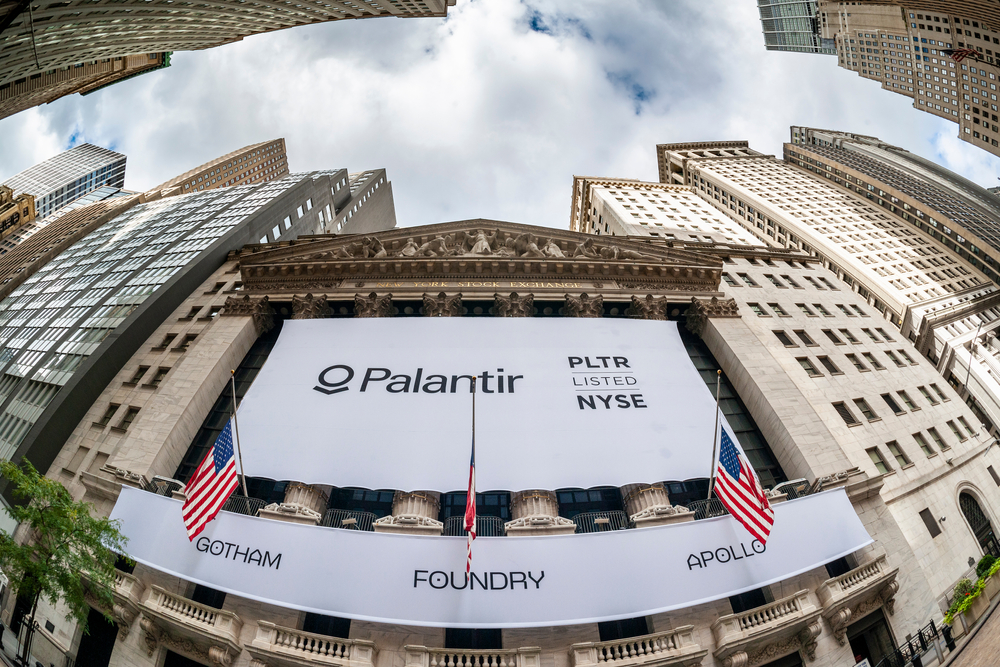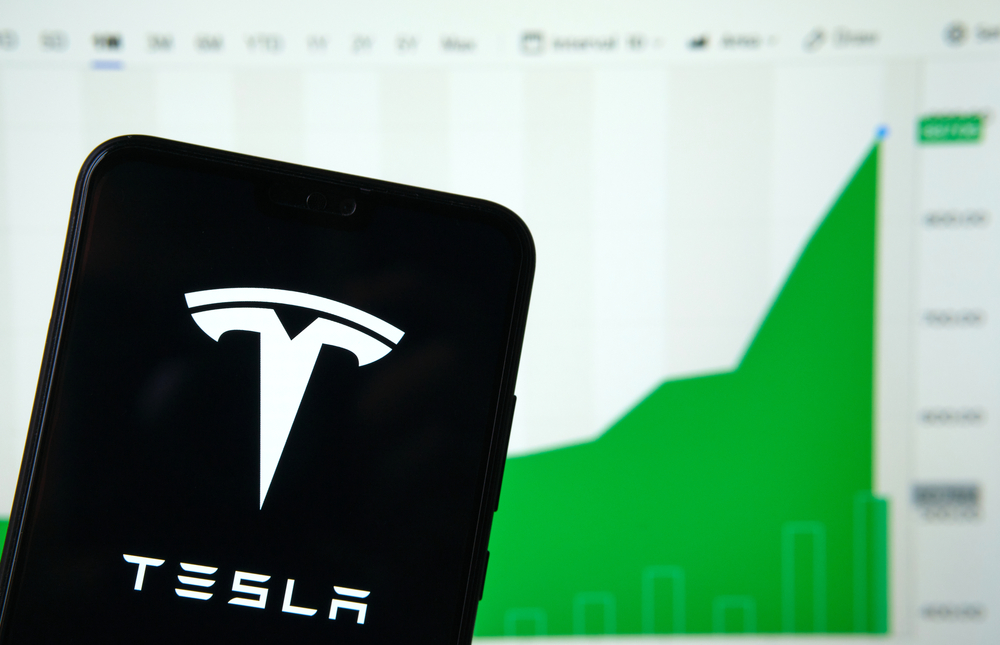In late January of this year, a dingy subreddit called WallStreetBets ignited a short squeeze in GameStop shares, triggering an all-out market frenzy.
The unprecedented move took equity markets by storm, caused fortunes to be created and destroyed, and finally catapulted a fiber-optically connected community of risk-hungry speculators to global superstardom.
Since then, perceptive retail investors and institutions alike have turned a keen eye toward the discussions taking place on the subreddit, hoping to whet their beaks on the next big play.
Certain hedge funds are rumored to be creating algorithms solely built with the purpose of scouring WallStreetBets for tiny morsels of edge, and entire departments have been institutionally assigned to analyze price and volume as they relate to activity on Reddit.
With that in mind, it seems prudent to attempt to determine which companies are most reliably supported, then find out why the community members are so drawn to the stock.
There are a handful of companies that the Reddit masses on love — but three names are consistently discussed more than the rest.
Why are these names so constantly and dependably mentioned? And why do these businesses strike such a chord with the many millions on WallStreetBets?
Let’s take a look…
Table of Contents
GameStop Corp. ($GME)

mundissima / Shutterstock.com
If beleaguered brick-and-mortar video game retailer GameStop is the crown jewel of WallStreetBets, its proverbial “Maltese Falcon,” then the infamous January short squeeze in the stock was the ramshackle subreddit’s magnum opus.
The move was so remarkable and the story so enthralling that it completely transcended traditional financial news media to become the hottest beat in world-news journalism.
It also caused a tumultuous groundswell within WallStreetBets itself. As its notoriety moved from the side stage to the main stage, the community enjoyed a tenfold increase in subscribers, now totaling over 9 million self-described “autists.”
But now that the media frenzy has ended and the short interest has plummeted, why is $GME still the most trafficked name on WSB?
The stock has been on an absolute rollercoaster this year, but it’s remarkably resilient, trading at just over $195 per share on top of a $12.6 billion market cap at the time of this writing, and seemingly bouncing every time it dips near or just below the 50-day moving average.
This is notable as the recent market downturn has caused the vast majority of growth and momentum stocks to test closer to their 200 day moving averages, but GameStop floats above many of its peers on a relative performance basis.
To put this expansion in perspective, in September of 2020, the stock was consistently trading for around five dollars. It then began a noxious simmer, the volume started to balloon, and on the first trading day of the new year, January 4, $GME closed at $17.92 before making its eventual run to an all-time high of $483.
While many believed it would crater right back to $5, or to $17, it remains up an astounding 862 percent year-to-date, and the relative buoyancy in the equity is illustrative of a key fulcrum to the success of WSB: the idea of “diamond hands” — having the psychological grit and philosophical inflexibility to hold the entirety of one’s position through all of its peaks and, more crucially, its valleys.
The tao of WallStreetBets dictates that there’s power in numbers and all must “hold the line” of the share price. They have proven this can be a massively effective strategy and one that should likely get credit for keeping GameStop at comparatively astronomical levels.
But an old adage reads that a company is only as good as its management, and a new major shareholder has caught the interest of users as well…
The traders on WallStreetBets are like many retail investors in that they are drawn to companies that their favorite guru investors pile funds into, as well as businesses run by CEOs or board members with proven track records they like and admire.
If Chamath Palihapitiya, Michael Burry, or Cathie Wood are building an outsized position, you can bet your bottom dollar that WSB will be right there buying with them.
There also seems to be a sort of unique and rather morbid fascination afloat with redemption stories — stocks that are cheap and depressed getting a sudden infusion of volume and volatility.
GameStop checks both of these boxes, the former marked by Chewy founder and former CEO Ryan Cohen’s surprise purchase of 10 percent of the company in September of 2020, followed by an additional 3 percent in December.
The peanut gallery on WSB enthusiastically applauded the move, pointing out that Cohen is a master of e-commerce and more than qualified to move $GME out of the mall and into the 21st century.

dennizn / Shutterstock.com
Moreover, it seems as if this is exactly Cohen’s plan, and he’s taking it very seriously…
A recent Reuters piece highlighted the story of a man who was so incensed with slow shipping and the lack of communication from GameStop customer service representatives that he sent a scathing email to more than two dozen executives and board members.
“NOBODY has attempted to respond except a muddled voicemail with no distinguishable callback number or extension. E-commerce requires a customer support team and processes that are responsive,” the man wrote in his rebuke.
He sent the email one morning in early March and continued on with his day, expecting the same lack of reciprocation he’d become accustomed to during the prior four months of attempting to reach anybody who could help.
But later that evening, about 12 hours after shooting off his furiously typed diatribe, he received a phone call.
The voice on the other end of the line was none other than Ryan Cohen’s.
“I just got your email, I’m so sorry this happened. Let me get to the bottom of this,” Cohen said.
This is the sort of attention to detail from upper management that investors can normally only dream about.
Similar reports of Cohen staying up into the wee hours of the morning obsessing over GameStop’s customer service woes have circulated WSB and further bolstered the masses’ confidence in his turnaround strategy.
He has also installed executives with former employers like Chewy and Amazon in key leadership roles, doubling down on his promise to pivot GameStop into the world of e-commerce.
But all of these facts pale in comparison to one overwhelming truth: GameStop continues to be the most discussed name on WSB because the connection for many is sincerely emotional and achingly nostalgic.
Beyond the fact that a large swath of millennial males (a demographic which outnumbers any other on the subreddit) shopped there regularly as young adults, many of the aspiring traders constantly discussing $GME on Reddit and Twitter completely missed the first huge run and have a fear of missing out on a repeat event.
What’s more, others are in the even less enviable position of being “bagholders” — trading jargon meaning they’re stuck holding the stock after having purchased it at a (much) higher price than it currently trades for.
These perma-bulls know the playbook has already been written and proven out, the stock is beloved and ensconced in WSB history forever, and that any major volume spike could trigger similar FOMO-induced sentiments in others (both retail and institutional alike,) sparking another supermassive ascension of the share price.
However improbable this thesis may be, many on WSB believe it to be all but a certainty, while others have far more humble reasons for holding the shares…
A user by the name of Spearmintzs (who has posted screenshots verifying he owns over 20,000 shares of GameStop valued at nearly $4 million at the time of writing,) may have perfectly surmised the thoughts of many when he justified his high-conviction trade by simply posting:
“Honestly, I like the stock, Ryan Cohen, cats, games, chicken tendies, and whiskey in no particular order.”
Palantir Technologies ($PLTR)

rblfmr / Shutterstock.com
Peter Thiel and Alex Karp’s big data analytics company is the most nuanced and complex business on this list (though number three gives it a run for its money).
It would be a futile effort to attempt to thoroughly explain Palantir’s technological applications in the time and space available here. But getting a basic understanding of what exactly the company does can put you miles ahead of many of the community’s myriad bulls in the name, where confusion between artificial intelligence, data mining, and data arbitrage is rampant.
According to an answer from an illuminating Q&A with software engineer Kevin Simler, Palantir is “building a software platform that enables people to take whatever data is relevant to them and understand it more easily and thoroughly than ever before … And we are applying this vision, at first, to solving problems in the finance sector and the government intelligence community.”
While this is more or less accurate, what they really mean when they say they “enable people” is that they enable multinational corporations and government entities.
This is an important distinction to understand: Palantir is not consumer-facing and there are no Palantir products that retail investors can personally interact with.
This makes the stock somewhat anathema to the names generally lauded within the subreddit, the majority of which are popular everyday-use technology brands or retail stores.
In contrast, Palantir’s customers are amorphous bureaucracies, seeking out the company’s proprietary software to provide human-driven information analysis tools, summarize and visualize large data sets and iterate rapidly. In other words, quickly respond to complex questions and follow-up questions without getting confused (imagine Alexa if she had an MBA from Wharton and took the pill from “Limitless.”)
To simplify this a bit, essentially Palantir’s software does super-analysis on data, and that data is input by individuals who work for corporations and governments to solve exceptionally intricate problems.
The software doesn’t mine data, and although there are artificial intelligence protocols within Palantir, the focus of the breakthrough technology is not particularly reliant on AI.

Sundry Photography / Shutterstock.com
The company currently has three major projects: Gotham, Metropolis and Foundry; these are used by government counter-terrorism and defense department analysts, the financial services industry, and broader corporate applications, respectively.
So whereas Gotham is highly specific to law enforcement applications, Metropolis and Foundry are designed to interpret more multitudinous data from much wider varieties of businesses and corporate clientele. A lender may ask Foundry to determine a way to secure fewer defaults on loans, while a hedge fund could employ Metropolis to optimize a specific defined-risk strategy.
As impressive as this technology is, another key to the success of Palantir amongst the groupthink of WSB lies in its infancy and price discovery.
The stock debuted at $9.12 just six months ago on Sept. 30, and for the following three months proceeded to rocket 325 percent to an all-time high of $45 per share on Jan. 27.
Since then the price has been cut in half, following the downtrend of many of its peers in the universe of growth and momentum stocks, and Palantir currently trades for just over $23.
This brand of dizzying volatility in a recently public company is actually relatively normal, and is always indicative of the same truth…
…the market has absolutely no idea how to accurately price the stock.
These are generally opportune times to start new positions and the sharper minds on WSB know this. The narrative is that if enough of them band together à la $GME, they can bring $PLTR to new all-time highs and beyond.
To top it all off, and foreshadowing the next name on this list, Palantir’s CEO Alex Karp has recently made comments detailing his express support for the ethos of WallStreetBets’ and the individuals having success in the forums.
“I like so-called retail investors for lots of reasons,” Karp said during a CNBC appearance in March, adding “I’m very proud that normal people, investing their own money, with their own risk, making their own opinion, made a lot of money.”
Tesla Inc. ($TSLA)

Ascannio / Shutterstock.com
WallStreetBets absolutely adore Tesla and many of its disciples practically worship at the throne of “Papa Elon” Musk.
It seems obvious why, as in many ways it is the perfect stock for Reddit: A next-generation automotive technology company with a wildly volatile share price helmed by one of the most charismatic and successful celebrity CEOs on the planet … rather, in the galaxy.
Musk also loves memes, hates hedge funds, and has personally endorsed the philosophy behind WSB. But other than the kismet Musk has with Reddit, further examination reveals that there is a narrative reason why WSB users continually wax poetic about his company.
One can make the case that Tesla was the canary in the coal mine for the recent “Reddit rebellion” of short squeezes. The hivemind of WSB, aided by the brilliant research of “Mama Cathie” Wood and ARK Invest, correctly identified Tesla as a premium target for a squeeze way back in 2018.
Here was a company where the fundamental earnings narrative was entirely decoupled from the share price, any relatively conservative analyst called the stock wildly overvalued at $375 pre-split, and every historically successful short-seller in the game saw a slam dunk.
So many times before had they seen it: A stock gets too popular among retail investors and finds itself inflated beyond fundamentals … so what else is there to do?
They open their short position, promptly go on CNBC and berate every aspect of the business (and its C-suite,) then go to lunch and get martinis while the share price plummets — calling their prime broker to cover said short as they’re closing their tab.
But this time, the age-old game stopped working. The martini drinkers lost billions, and billions, and then tens of billions. By the summer of 2020, the collective institutional sentiment around Tesla was clearly changing. Analysts who condescended “Mama Cathie’s” $4,000 price target just months prior lined up to heap lavish praise on her clairvoyant genius.

Phil Stafford / Shutterstock.com
Short sellers and public critics began to throw in the towel and cover positions, while others, like Andrew Left of Citron Research and Kevin O’Leary from “Shark Tank,” did astounding 180s and went long the stock.
They finally broke through their cognitive biases and allowed their brains to do what many retail investors had done long ago: They divorced the fundamentals from the share price and saw the possibilities for growth just beyond the event horizon.
In other words, they started thinking less like geriatric fund managers and more like a basement trader on Reddit — they then started making billions instead of losing them.
It was arguably the first of many battles between Reddit and legacy fund managers, and Reddit won. The squeeze in Tesla was a much slower boil than GameStop, but it certainly shared many similar characteristics and in hindsight can be seen as a bellwether for the eventual cataclysm around $GME.
The parallels with WallStreetBets’ favorite and most lucrative trade coupled with the allure of a similar squeeze or another surprise split of the share price are certainly contributing factors to keeping Tesla near the top of the list.
Along with the aforementioned technical and game-theoretical reasons why Reddit loves Tesla, it’s also clear that many simply idolize Elon Musk, are dazzled by the cars he builds, and see even more exciting new growth opportunities for his company than ever before.
Aside from designing stellar vehicles, Tesla also has a rapidly developing solar business, novel in-house battery technology, a burgeoning insurance wing, and the imminent release of full self-driving capability to look forward to.
These areas aren’t yet generating huge profits for Tesla, but the promise of their potential, married with the impressive speculative appetite of contemporary investors, has caused the market to pre-emptively price these factors in and place Tesla’s market capitalization beyond any other car company.
Tesla’s stock performance is one of the larger and more mainstream examples of recent market sentiment eschewing fundamentals for growth, and the parroting bull pit of Musk fanboys on WallStreetBets was a major contributing factor to this sentiment change.
So What?
While Palantir’s story is barely through its initial chapters, the recent revolts in Tesla and GameStop, engineered primarily by the stunning solidarity amongst the users of WallStreetBets, are harbingers of a new era of consequential retail participation in world equity markets.
This environment is a perfect natural ecosystem for the creatures that inhabit finance Reddit, a speculative jungle teeming with money and opportunity.
In a bizarre twist, the sophisticated investment banks that the “unsophisticated” traders on WSB would normally try to front-run are suddenly trying to front-run them, just as commission-free option trading privileges are being handed out like waiting room lollipops by many of those very same banks.
The sheer number of new brokerage accounts opened in 2020, equaling billions of fresh dollars flowing into stocks, has led to an astoundingly steep but historically trackable multiple expansion amongst the entire S&P 500, with the index up over 85 percent since hitting lows in March.
This has created a veritable perfect storm, as rampant speculation on chat rooms like WallStreetBets, bolstered by never-before-possible capital market access for the average retail investor, has punched the clock for a kind of bizarro monetary chess match between stoners on Reddit and the most powerful institutions in global finance.
In the aftermath of the GameStop squeeze, investors saw the complete financial devastation, professional humiliation, and near-total destruction of one of the biggest power players on Wall Street — Gabe Plotkin of Melvin Capital.
Had anyone been on WallStreetBets’ side of this trade, they would have surely made a fortune. Had they followed more traditional “sophisticated” investment advice, they would have ended up like Melvin and Plotkin, but much worse off because they wouldn’t have billionaire friends to bail them out.
GameStop and Tesla were not flukes, and “unsophisticated” is a misnomer for the traders that inhabit WallStreetBets, as evidenced by quotations hitherto cited and painfully obvious to any observant visitor who can read beyond the forum’s strange nomenclature and off-color memes.
The sea change has begun, and investors find themselves in a new paradigm. There will be many more unbelievable growth opportunities that seem divorced from historical fundamental bellwethers, and these trades are usually handcrafted in-house at WallStreetBets.
Regardless, there’s little downside in listening for the Reddit whispers, hearing what exotic trades they’re setting their sights on next, and attempting to get to the crux of why they love the stocks that they do.
Featured Image credit: mundissima / Shutterstock.com

